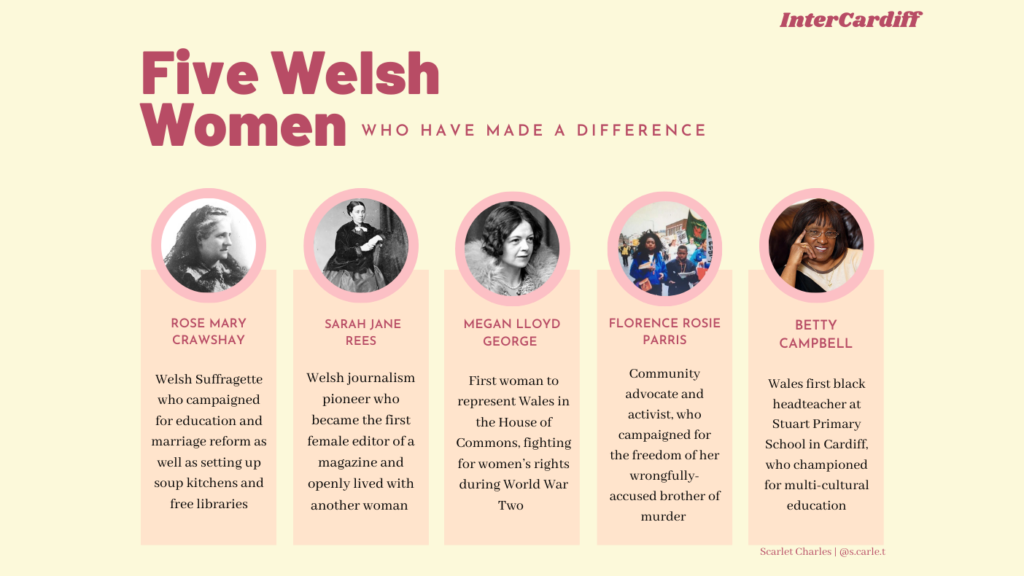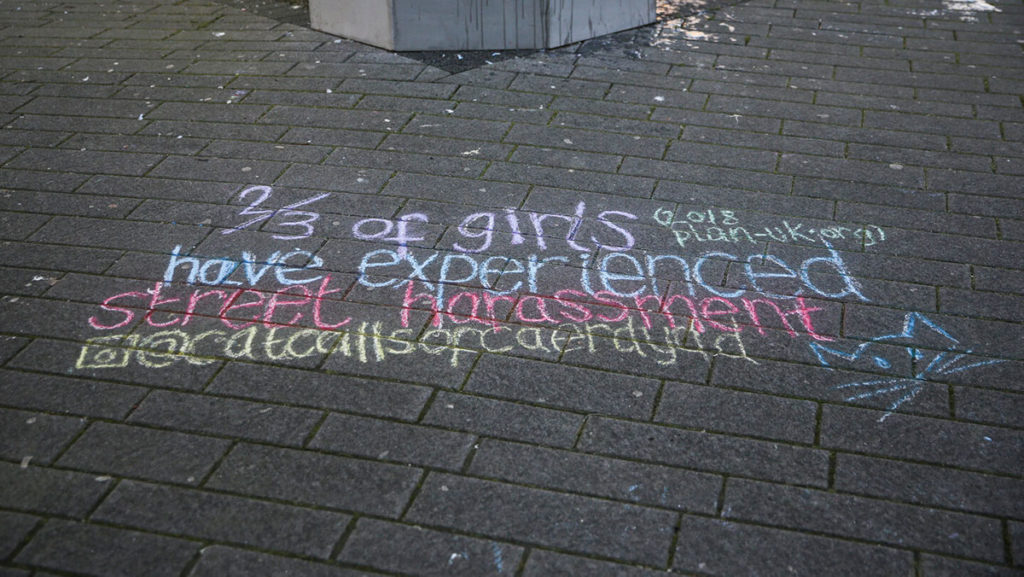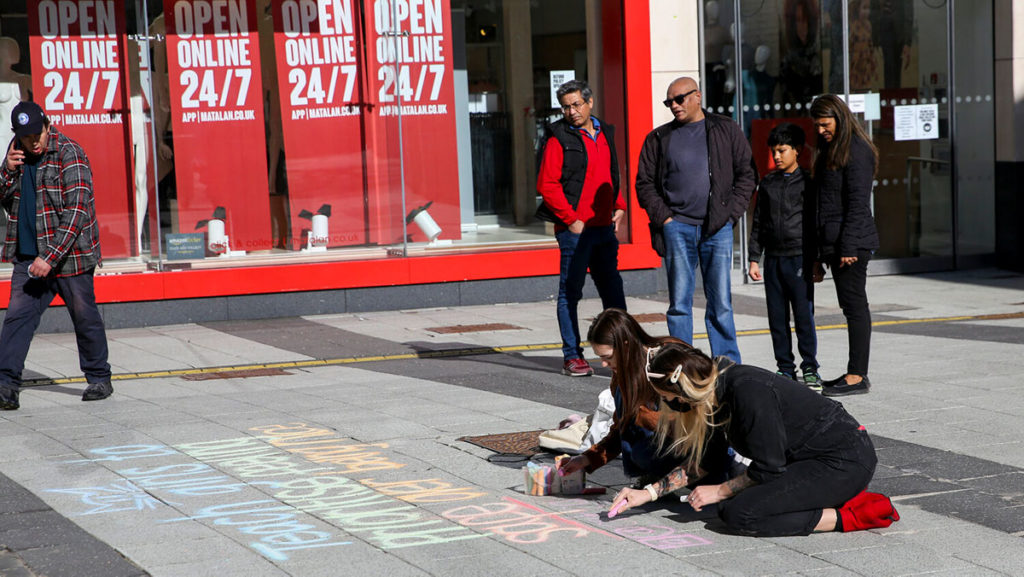Women face street harassment every day, so how are women in Wales standing up for themselves and fighting back?
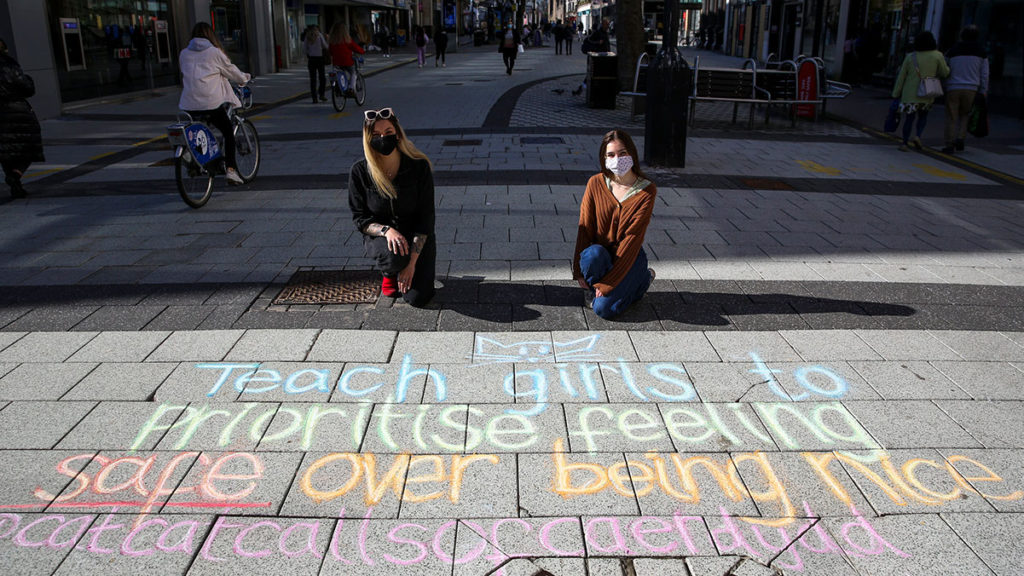
It’s Friday night. You’ve had a few drinks at your friends’ house when you decide to go home. You call an uber, grab your coat and your bag, and leave their house. As you open the car door, you hear your friend ask you to turn your location on and to call them when you get home. They just want you to be safe.
Every day, women fear for their safety, whether it be at night walking home alone, or during the day, in the middle of a crowded street. Even when the streets were at their emptiest during lockdown, one in five women reported street harassment and catcalling, according to a study by Plan International.
Lockdown has shown that catcalling and street harassment aren’t about what you wear or what you look like, with the majority of women wearing masks. A study by UN Women UK has shown that 80% of women of all ages in the UK have experienced unwanted sexual harassment in public places, and 35% of women had experienced unwanted sexual touching in public.
A group of women are finding a way to fight back armed only with a set of coloured chalks.
They’re documenting catcalls that have been shouted at them, chalking it on the street, and posting them on Instagram. This idea came from the ‘Catcalls of NYC’ initiative started in 2016, and has now grown to be an international movement created to empower women.
“Catcalling isn’t something people are used to seeing,” says Sarah, who created her own ‘Catcalls of Caerdydd’ with her friend Grace. “But we’ve already had so many submissions and responses from people, which is a way to stand up to catcalling.”
The Instagram page was started in January 2021 by the two second-year midwifery students from Cardiff University.
“We met up with a bottle of wine each, and started crying at the state of the world”, explains Sarah with a laugh. “So I told Grace, ‘we’re going to do this. The world is terrible, and we’re going to change it!’”
So, they just went for it. They created the instagram account, and quickly got messages from women all around Cardiff.
“Unfortunately, but fortunately, you’re not alone,” says Grace. “And by sharing the issue we can raise some awareness about it, to fight back against catcalling.”
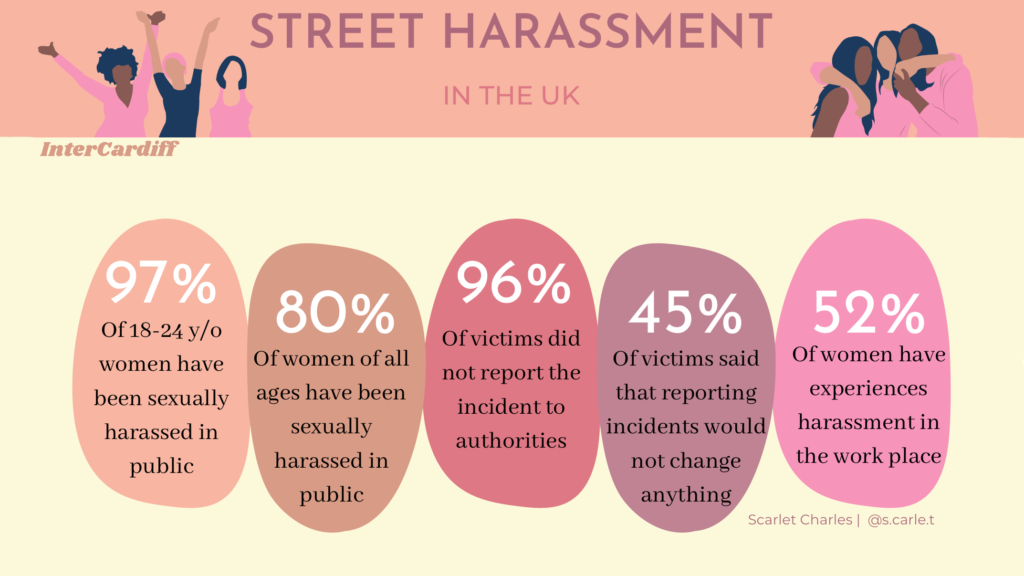
But the goal for pages like ‘Catcalls of Caerdydd’ isn’t only to share stories, but also to educate people. Grace states indeed that, “raising awareness is an opportunity for education.”
The two midwifery students explain that, while chalking testimonies on the street, the majority of people who approach them are men: they usually weren’t confrontational, but rather curious as to why catcalling wasn’t a compliment.
“They can’t comprehend how it feels to be catcalled,” says Grace. “Until you’ve experienced that, you can’t picture how that would make you feel. Hopefully, those few interactions do make them think twice, and in the future, they’re not going to go about it that way. Hopefully that makes a difference.”
The lack of education is the main reason behind catcalling. Such as asking someone what they were wearing during a rape trial, a lot of men believe that catcalling a woman is a compliment. But it is inherently tied to rape culture.
A study conducted by Kent University shows a clear link between sexually objectifying women and aggression that may lead to rape: catcalling turns women into objects, which eventually leads to violence.
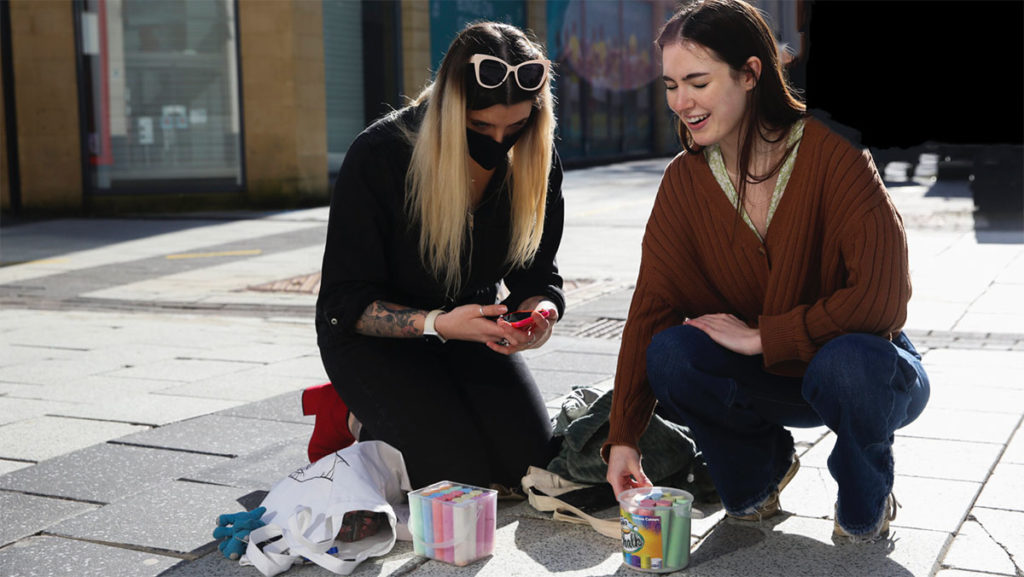
Hannah Lingard, a Cardiff University student, made a short documentary about street harassment for ‘Catcalls of Bristol’. Her main goal was to raise awareness to the small acts of harassment that happen, but also to show women that they’re not alone and that their experiences need to be heard.
She says, “I think that when women unite and call down something, saying ‘no, this isn’t ok’, then the united voice can hopefully initiate change.”
Women joining forces has, historically, broken many ceilings and stereotypes. And, in their own way, Sarah and Grace are doing it too.
